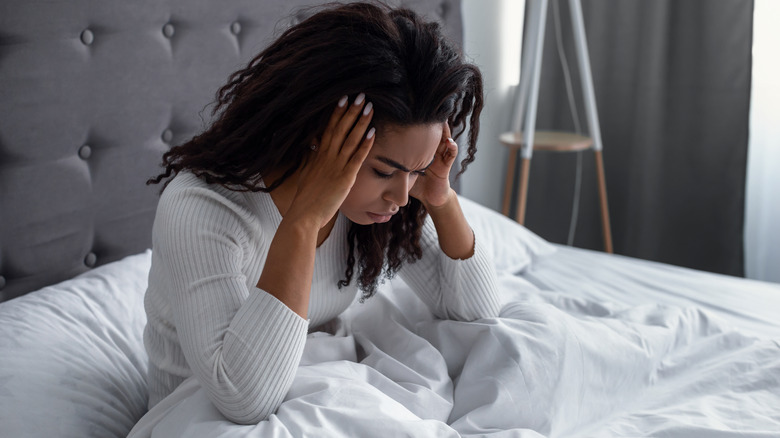Can You Get A Fever From Your Hangover?
Even though we try to avoid them, if you've ever overindulged in an alcoholic beverage, you may have experienced the dreaded hangover. Hangovers can bring you headaches, fatigue, nausea, and dehydration the day after drinking. Sometimes, these symptoms can even make you feel feverish.
While fever is not one of the typical symptoms of a hangover, it is possible for one to emerge after drinking. Experts say this could be due to other symptoms you experience with a hangover like electrolyte imbalances, gut disturbances, immune system or sleep changes, and more (via Healthline).
The immune system response can actually be triggered by alcohol. Similar to when our body is fighting off an infection, studies have shown that during a hangover, the body produces high levels of proteins that the immune system uses to communicate with cells and trigger a fever (via Purple Tree). Your body may also be reacting to the histamines used in alcohol, which can cause both inflammation and fever.
How a hangover can affect your immune system
Additionally, alcohol can compromise your immune system, making you more susceptible to bacterial or viral infections and have more difficulty fighting them off, according to Healthline.
You also may develop a fever because of the effect alcohol has on your liver and blood sugar levels. Drinking heavily, especially without food in your stomach, can prevent your liver from releasing glucose into your bloodstream, according to Purple Tree. If you become hypoglycemic, your body may develop a fever as a response.
So when does a fever become cause for concern? Experts say you should seek medical attention if your fever rises above 103 degrees Fahrenheit and if symptoms don't go away within 24 hours or worsen. Otherwise, be sure to rest and stay hydrated until your body recovers from your alcohol intake. You can also take Tylenol or ibuprofen for pain relief and monitor your temperature until your fever breaks.


